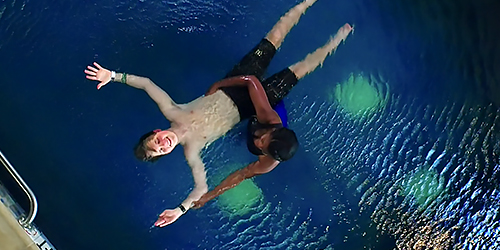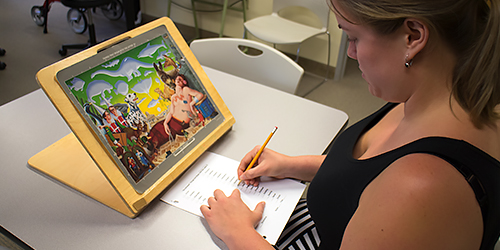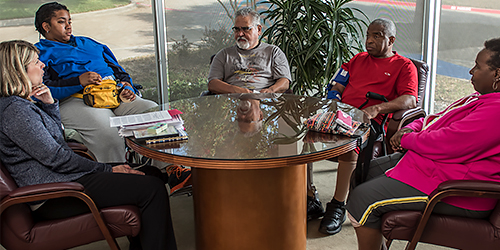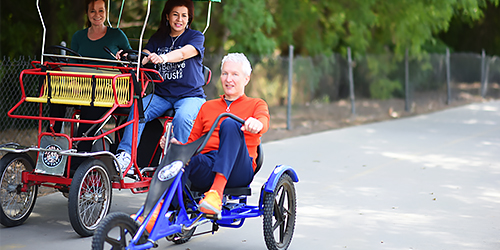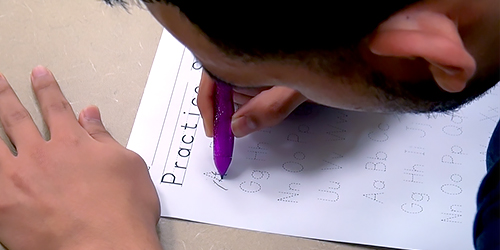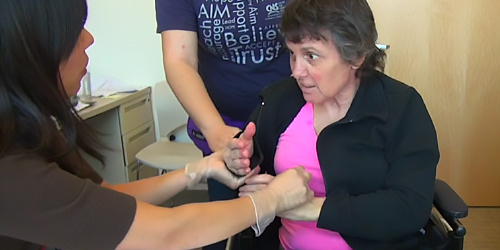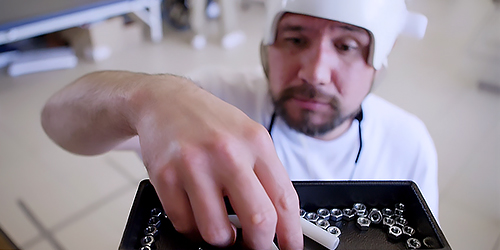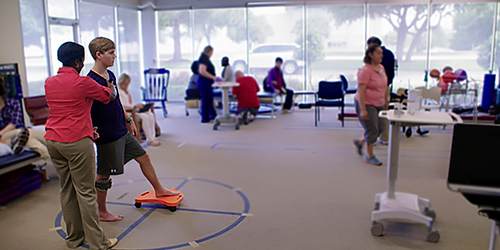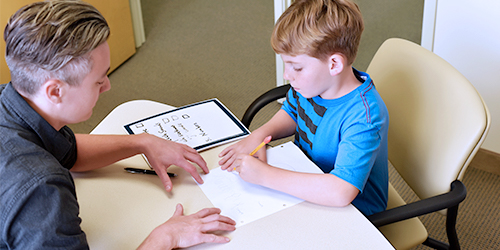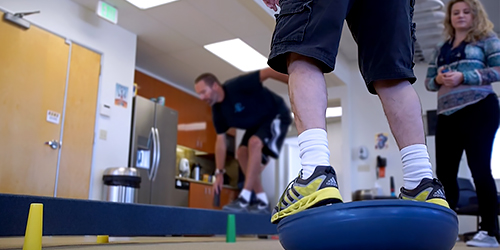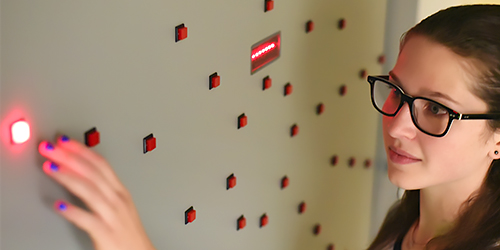Aquatic Therapy
Traumatic brain injury often affects many aspects of a person’s ability to function post injury. Gait, balance, flexibility, and strength are among the challenges that patients face. Aquatic therapy is an effective method of addressing these issues while in a specialized temperature-controlled pool. Conducted by a trained therapist, treatments and exercises are performed while floating, partially submerged, or fully submerged in water.
Read More
Cognitive Therapy
Among all the disruptions inherent in brain injury, cognitive functioning is one of the most devastating. The simple task of remembering vital information is a struggle for many patients. Cognitive rehabilitation at CNS emphasizes independence in every therapeutic module and exercise, building skills that restore the rhythm of living.
Read More
Counseling
An essential aspect of treatment is supportive counseling and psychotherapy, both for the individual and the family. Rebuilding the patient’s life of relationships, work, intimacy, and self-esteem are core objectives of counseling offered at CNS. Spouses, children, friends, and loved ones may participate in one-on-one counseling and/or group therapy as part of the patient’s rehabilitation.
Read More
Complimentary Integrative Therapy
When patients return to life after rehabilitation, they need a skillset for enjoying life and its recreational options. Complimentary Integrative Therapy (CIT) introduces patients to the infinite possibilities for using core skills innew and exciting ways. Trained therapists collaborate as part of the patient’s treatment team to plan activities that augment traditional therpapy and address specific deficits. Activities are designed to enhance motor skills and improve social and cognitive functioning.
Read More
Education Therapy
This multifaceted program teaches patients crucial skills that may have been compromised due to brain injury. Following an injury, many people work to return to productivity either at their previous competency level or some modified version of it. Education therapy builds capabilities that ease this return to life post rehabilitation.
Read More
Neurobehavior Therapy
Behavior issues are often a complex and heart-rending reality when someone endures a brain injury. It touches all aspects of a patient’s recovery and re-entry into the community. Without treatment, problems worsen for the patient. Self-medication, substance abuse, legal trouble, and public safety issues may impact the family and loved ones. Predictable behavior is one of the most meaningful milestones they hope for as the patient recovers.
Read More
Occupational Therapy
At CNS, occupational therapists incorporate a holistic approach to treatment, addressing a spectrum of issues. These include: physical dysfunction, visual impairments, and help with self-care, home care, sleep, leisure, and work. Because brain injury can result in complex deficits, CNS takes a multifaceted approach to treating the complexities associated with those deficits.
Read More
Physical Therapy
Learning to walk again after a brain injury is one of the most crucial goals of rehabilitation. CNS is renowned for its Physical Therapy program, which is focused on regaining ambulation and balance to enhance a patient’s return to a meaningful life. The program is tailored to each patient’s injury, capability, and potential. Trained therapists utilize technology and clinical practices to maximize patient abilities. This comprehensive approach is designed to enhance our patients’ functionality at home or work.
Read More
Speech & Language Therapy
Cognitive deficits such as decreased memory, poor concentration, and an inability to solve problems can impact an individual’s ability to return to school or work or complete the most basic activities of daily living. Some individuals may also have difficulty with basic skills like swallowing, forming words, or using their voice. Centre for Neuro Skills has been treating speech and cognitive disorders since its inception in 1980. Our intensive therapies focus on restoring communication and cognition essential for safety, returning to work or school, and community reintegration.
Read More
Vestibular Therapy
Brain injury often involves physical challenges that, if not addressed in rehabilitation, can impact a patient’s quality of life and safety post injury. One of those challenges is vestibular dysfunction, which may cause imbalance, dizziness, and gaze instability. Vestibular therapy is a treatment primarily designed to reduce vertigo and dizziness, gaze instability, and/or imbalance and falls. With proper treatment, patients can regain function through compensation as the brain learns to use other senses to substitute for the deficient vestibular system.
Read More
Vision Therapy
When someone endures a brain trauma, vision problems are often the unwelcome companion of concussion, traumatic brain injury, or stroke. Because vision is so crucial to functioning after a brain injury, CNS offers a comprehensive vision component tailored to each patient’s deficits and needs. Post injury, patients may not realize they have visual challenges until seemingly unrelated issues arise. An awkward gait, imbalance, problems with activities of daily living or learning difficulties can be the clinician’s clue that impairments are present.
Read More


